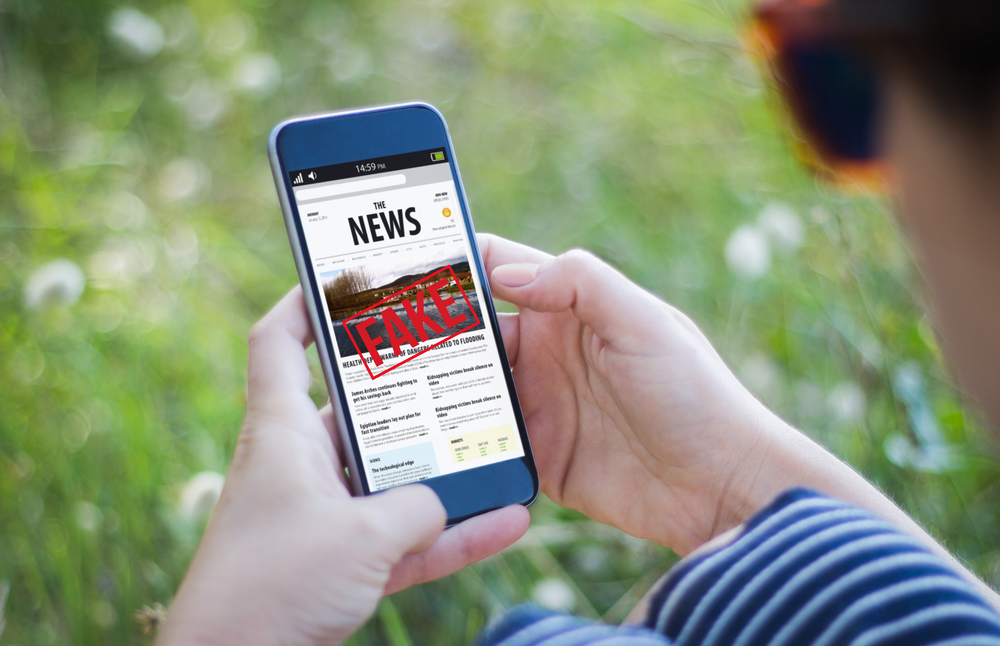Beware of misinformation
Increasingly, we have to guard against "fake news. What information can you still trust? Students at the School of Business give tips on how to deal competently with information on the social web.

Fake news" is the term used to describe false information that is often spread via social media. Their aim is to manipulate people's opinions in their own favor or in favor of a client - for personal, political or economic motives.
Evaluation of usage data for precise targeting
The key to the success of "fake news" lies in the precise targeting: The Stanford scientist Michal Kosinski explainsthat psychometricians now draw precise conclusions from your Facebook likes alone, "about your political views, your religion, your personality, intelligence, happiness and sexual predisposition, and even whether your parents are divorced". In an experiment, it was shown that after analyzing just ten likes on Facebook, an algorithm assesses people better than their work colleagues; after a hundred, its knowledge surpasses that of their own family members, and after 230, better than their life partners.
People today increasingly inform themselves via the internetespecially via social media. A central role in the matter of "fake news" is also played by Social bots - Computer programs that pretend to be human users on social media and effectively distribute content.
Influence opinions in a targeted manner
Of all things, the term "fake news" is used as a fighting term to discredit serious media by those who want to influence opinions with false information in this way. This is because the latter can act as a corrective against "fake news." This has led to a loss of trust in media reporting - even among some students at the School of Business and Economics, as was repeatedly demonstrated in class discussions.
Growing demands on the ability to criticize the mediat
In their daily work, business economists need to find reliable information and communicate professionally themselves on various channels. With the shift of our information behavior to the Internet and with the increasing sophistication of the practices of "fake news" makers, there is a need for ever better media criticism skills.
Tips for responsible use of information on the Internet
This is where the students of the Business Administration course at the Hochschule für Wirtschaft in Basel came in. They reflected on their own usage behavior and researched possible ways of dealing with fake news. Based on this, they are now giving their fellow students ten advice for the responsible handling of information in online media:
- Control your emotions: Don't spread posts immediately if you have a very emotional reaction to them. "Fake news" targets your immediate emotional reaction. Consider the following tips first.
- Seek other sources for the information: Are reputable media or other reliable sources you know reporting on the issue? If not, this may be an indication of "fake news.
- Check the sources: Where do the statements come from? Are sources mentioned and do the studies, persons or institutions really exist? Who is behind it and with what interests? Contributions from anonymous authors or websites for which no clear responsibility for the content can be identified (e.g. in the imprint) are not credible. An exception is, of course, journalistic reports in which informants are not named for their protection.
- Check the URL of a source critically. Sometimes established media are imitated, the URL then differs slightly from the original URL.
- Check images and videos: Is there any evidence of manipulation? Perform a reverse image search ("similar images") to find out whether the images have already been shown in a different context. It may well be that the images were created in a completely different context than indicated.
- Pay attention to the layout and style: Unprofessional layout and incorrect texts are indications of dubious reporting. However, the makers of "fake news" are also becoming more professional.
- Inform yourself continuously in established, reputable media: This way, you'll be better informed about world events and won't fall victim to misinformation so easily.
- Protect your usage data where you can. Find out about ways to reduce your data footprint on the web as much as possible. Do not take part in questionnaire tests on the Internet, they can make it easier to create an accurate profile of you.
- Distinguish between facts and conjecture and opinion: What remains standing?
- Stand up for privacy. The more data is available about people, the easier it is to classify them according to their fears, needs, preferences, etc. and, if necessary, to manipulate them.
Source: University of Applied Sciences Northwestern Switzerland, University of Applied Sciences, Basel
In the Print edition 5/18 of the SecurityForum/IT-Security there is an article on the topic "Social Media: Dangers - and what to do about them": "Companies find themselves in a dilemma: social media are part of our everyday lives, including our professional lives. How do you strike a balance between corporate security, potential benefits and employee satisfaction? The article makes recommendations to reduce the identified dangers to a reasonable minimum."









